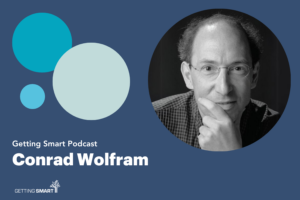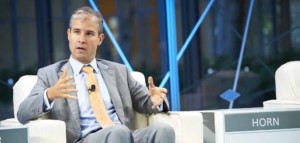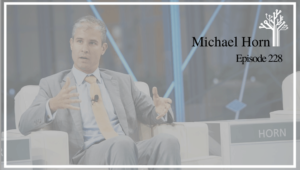On the Horn with Michael Horn
On his way to a conference, Michael Horn, Executive Director, Education of Innosight Institute stops in the airport to talk about online education
On the phone with Michael Horn, who was at Logan Airport in Boston when I called him. I asked what was on his mind these days. He says the big worry is about impact and effective operation of online education.
“The overriding thing is that online learning is definitely growing, but what I remain scared of is, will it actually transform the system?”
“As long as we shackle it with the same rules and laws that govern the existing system, we won’t allow it to do what we want it to do.”
Good points. We got to talking about disruption, that old saw. And Michael’s thoughts went to higher education, which has proven to be open to disruption and peppered with non-consumption.
“The interesting question is: Online learning has not competed in making education fundamentally affordable. How does that come about? I think it’s true that a lot of policies, the way we finance education…have not been asking the question, how do we make it affordable?”
The facts are that costs rise higher than tuition over time and over the past two years we have seen huge strains on university endowments. Then there is the problem of people coming into college and not having enough training. They need remedial efforts, which are also a drain on resources. Universities have tried solving that problem by plugging the gap with endowments, “But that model is broken,” says Michael.
At the end of the day, one has to wonder, with all the bright minds inside of the institutes of higher learning — the ones that succeeded in high school and came in with ambition, good backgrounds, and a lot of community and pedigree support, why hasn’t more been launched inside the programs to fix education?
I think there’s a reason that you have seen great social media programs emerge from university dorm room incubators. Because that’s the one thing that is valuable to students in college. That’s their world. Their world is not really the thing they train for all their academic lives.
There is a hidden freedom inside the mind of every well-trained university graduate. They know they must compete academically for success. They know they must graduate. But they really want to connect with that bigger world. They want to be useful, maybe.
The thing with school is that you are useful later. Something to consider going forward is whether you can put the tools for education reform in the hands of students.





0 Comments
Leave a Comment
Your email address will not be published. All fields are required.